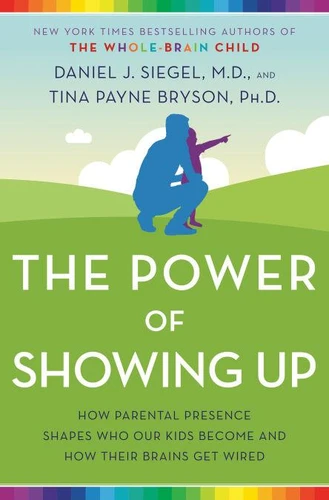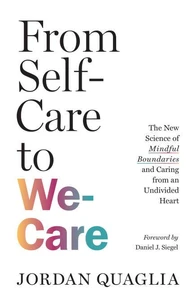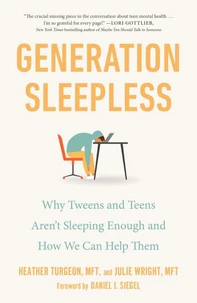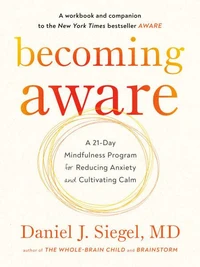The Power of Showing Up. How Parental Presence Shapes Who Our Kids Become and How Their Brains Get Wired
Par : ,Formats :
Disponible dans votre compte client Decitre ou Furet du Nord dès validation de votre commande. Le format ePub protégé est :
- Compatible avec une lecture sur My Vivlio (smartphone, tablette, ordinateur)
- Compatible avec une lecture sur liseuses Vivlio
- Pour les liseuses autres que Vivlio, vous devez utiliser le logiciel Adobe Digital Edition. Non compatible avec la lecture sur les liseuses Kindle, Remarkable et Sony
- Non compatible avec un achat hors France métropolitaine
 , qui est-ce ?
, qui est-ce ?Notre partenaire de plateforme de lecture numérique où vous retrouverez l'ensemble de vos ebooks gratuitement
Pour en savoir plus sur nos ebooks, consultez notre aide en ligne ici
- Nombre de pages256
- FormatePub
- ISBN978-1-5247-9772-0
- EAN9781524797720
- Date de parution07/01/2020
- Protection num.Adobe DRM
- Taille20 Mo
- Infos supplémentairesepub
- ÉditeurBallantine Books
Résumé
Parenting isn't easy. Showing up is. Your greatest impact begins right where you are. Now the bestselling authors of The Whole-Brain Child and No-Drama Discipline explain what this means over the course of childhood."There is parenting magic in this book."-Michael Thompson, Ph. D., co-author of the New York Times bestselling classic Raising Cain One of the very best scientific predictors for how any child turns out-in terms of happiness, academic success, leadership skills, and meaningful relationships-is whether at least one adult in their life has consistently shown up for them.
In an age of scheduling demands and digital distractions, showing up for your child might sound like a tall order. But as bestselling authors Daniel Siegel and Tina Payne Bryson reassuringly explain, it doesn't take a lot of time, energy, or money. Instead, showing up means offering a quality of presence. And it's simple to provide once you understand the four building blocks of a child's healthy development.
Every child needs to feel what Siegel and Bryson call the Four S's: . Safe: We can't always insulate a child from injury or avoid doing something that leads to hurt feelings. But when we give a child a sense of safe harbor, she will be able to take the needed risks for growth and change.
In an age of scheduling demands and digital distractions, showing up for your child might sound like a tall order. But as bestselling authors Daniel Siegel and Tina Payne Bryson reassuringly explain, it doesn't take a lot of time, energy, or money. Instead, showing up means offering a quality of presence. And it's simple to provide once you understand the four building blocks of a child's healthy development.
Every child needs to feel what Siegel and Bryson call the Four S's: . Safe: We can't always insulate a child from injury or avoid doing something that leads to hurt feelings. But when we give a child a sense of safe harbor, she will be able to take the needed risks for growth and change.
Parenting isn't easy. Showing up is. Your greatest impact begins right where you are. Now the bestselling authors of The Whole-Brain Child and No-Drama Discipline explain what this means over the course of childhood."There is parenting magic in this book."-Michael Thompson, Ph. D., co-author of the New York Times bestselling classic Raising Cain One of the very best scientific predictors for how any child turns out-in terms of happiness, academic success, leadership skills, and meaningful relationships-is whether at least one adult in their life has consistently shown up for them.
In an age of scheduling demands and digital distractions, showing up for your child might sound like a tall order. But as bestselling authors Daniel Siegel and Tina Payne Bryson reassuringly explain, it doesn't take a lot of time, energy, or money. Instead, showing up means offering a quality of presence. And it's simple to provide once you understand the four building blocks of a child's healthy development.
Every child needs to feel what Siegel and Bryson call the Four S's: . Safe: We can't always insulate a child from injury or avoid doing something that leads to hurt feelings. But when we give a child a sense of safe harbor, she will be able to take the needed risks for growth and change.
In an age of scheduling demands and digital distractions, showing up for your child might sound like a tall order. But as bestselling authors Daniel Siegel and Tina Payne Bryson reassuringly explain, it doesn't take a lot of time, energy, or money. Instead, showing up means offering a quality of presence. And it's simple to provide once you understand the four building blocks of a child's healthy development.
Every child needs to feel what Siegel and Bryson call the Four S's: . Safe: We can't always insulate a child from injury or avoid doing something that leads to hurt feelings. But when we give a child a sense of safe harbor, she will be able to take the needed risks for growth and change.
















